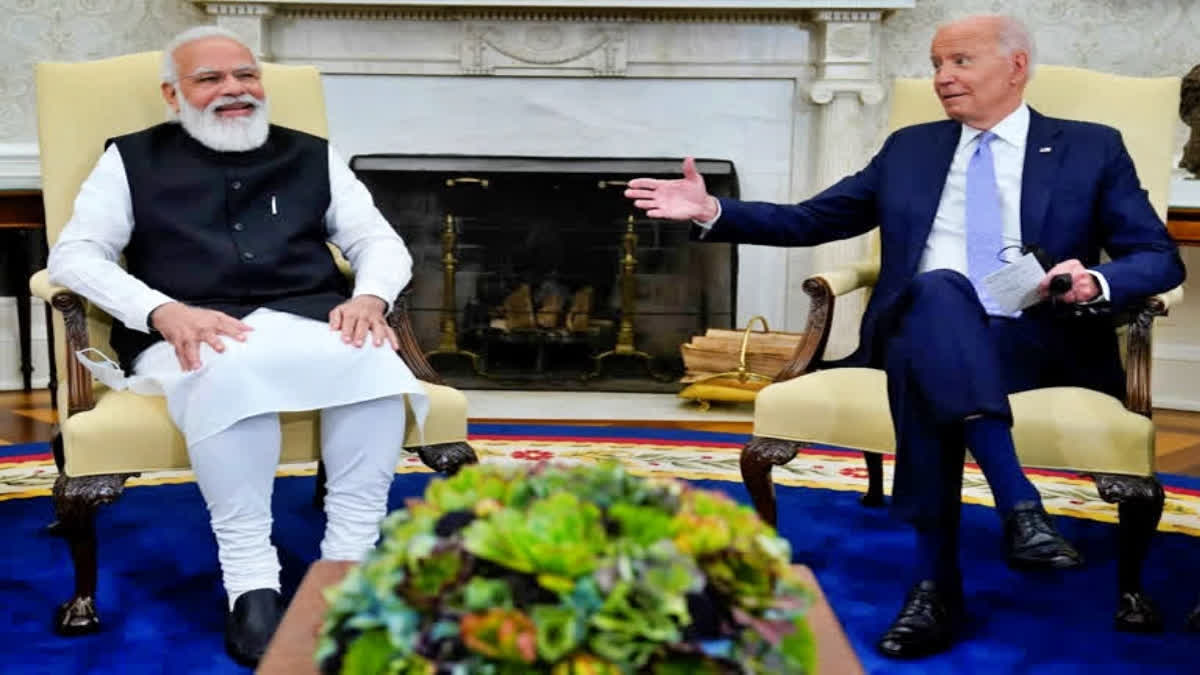Washington: Prime Minister Narendra Modi and US President Joe Biden during their talks next week are expected to touch on five broad areas of significance healthcare, technology, renewable energy, education and defence which would be reflected in the joint statement, India's envoy to the US has said.
The remarks by India's Ambassador to the US Taranjit Singh Sandhu came less than a week before Prime Minister Modi's historic State Visit to the US. Modi will arrive in New York on June 20 and will lead the 9th International Yoga Day celebrations at the UN headquarters on June 21. The Indian leader will then travel to Washington DC where he will be welcomed by President Biden and First Lady Jill Biden on June 22 for the State Visit, which will include an address to the joint session of the US Congress and the historic State Dinner.
The leadership will touch five broad areas which are significant. They will be touched by the leadership, and they will be reflected in the joint statement which will come out, Sandhu told PTI in an exclusive interview on Friday. The visit is very significant on the substantive part. This time around a lot of ground is being covered, he said.
Early this year the national security advisors of the two nations- Ajit K Doval and Jake Sullivan -- launched a path-breaking initiative on Critical and Emerging Technologies (iCET). Sullivan was in India this week for talks with Doval. Technology is going to be a significant part and you know that technology is cross-cutting. Technology is not only a commercial aspect but also has a very strong strategic side. And trust and confidence are important bases of any technology sharing or collaboration, he said.
The five major issues to be discussed during the visit include healthcare, technology, renewable energy, education and defence. One is healthcare and in that affordable healthcare, affordable medicines, affordable vaccines, and of course training, research, et cetera, all will be part of it. Number two is on the technology side, it is IT, digital startup innovation. All of them are in one basket.
"Then of course we have another that is the renewable basket, which has solar as an important element of that battery technology, similarly, hydrogen. All these will be prominently there, Sandhu said in response to a question. On education and knowledge partnership there is a lot of movement, he said.
"In India, we have a new education policy. Of course, here I would like to mention that there are at present 200,000 Indian students (in the US). Two-thirds of them are in STEM areas. This student population this linkage is a very important linkage. But under the new education policy now the forward movement is going to be in establishing campus-to-campus relations, intertwining of degrees, joint research, work, Sandhu said.
He said he has personally spoken to a large number of chancellors and presidents of universities and educational institutions. You have already seen that this has been carried forward. It's one of the important elements of iCET that is the education collaboration and that will be a significant path, he said. Finally, not the last and the least is the defence and the strategic side. As I mentioned, high tech is an important element. It is a cross-cutting area. High tech certainly has an impact," he said.
